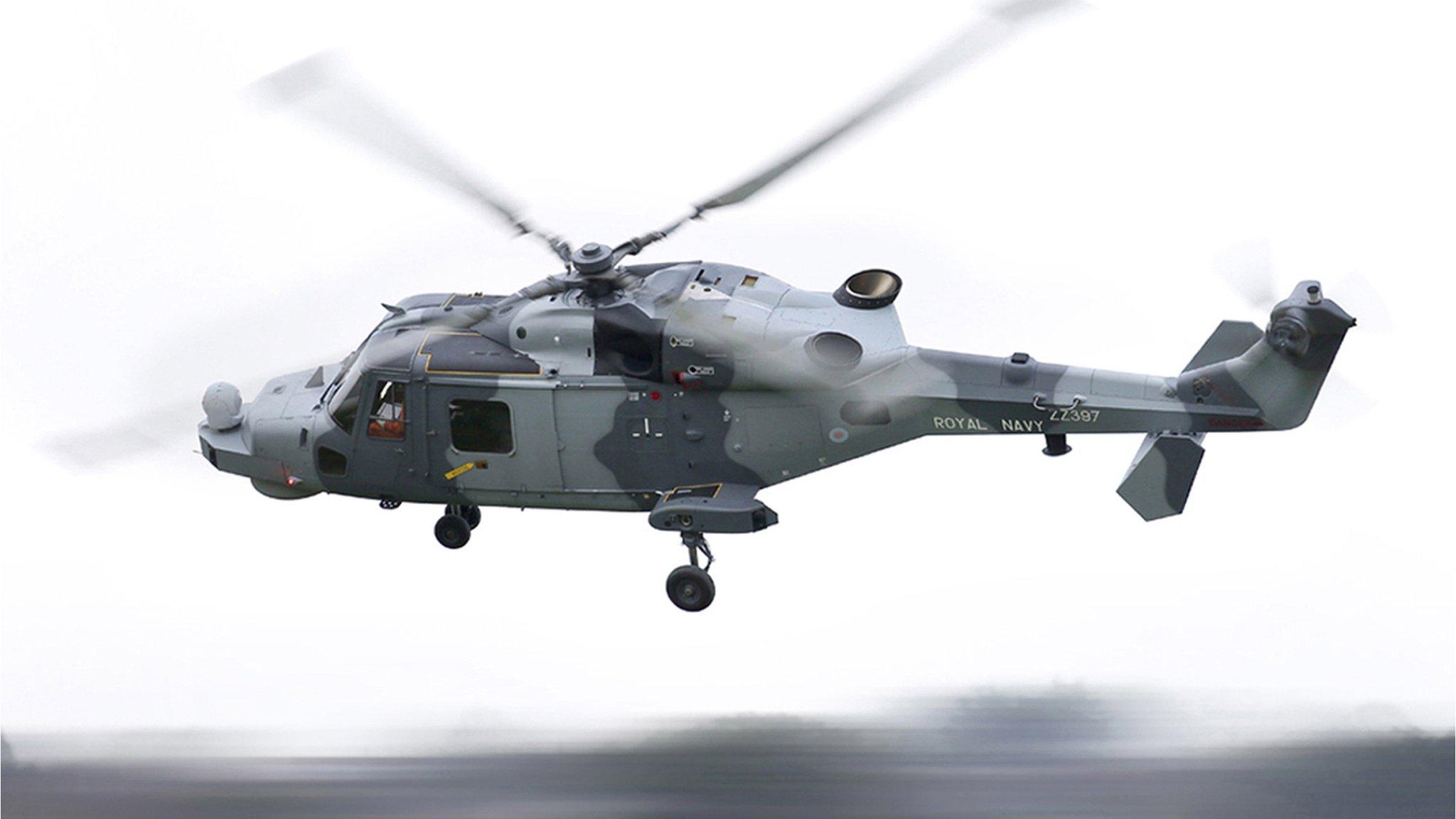Is the West losing its edge on defence?
- Published
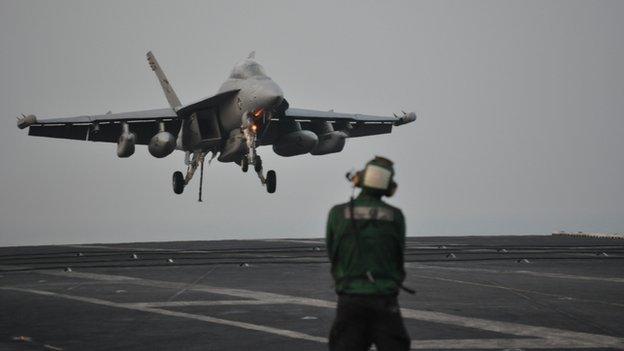
Speak to those who are in charge of the West's defence or have recently stepped down, as I did for Radio 4's programme The Edge, and you will find a very worried group of people.
They speak at length about the decline of their own forces, explain the growth of those of their challengers, and worry about the long term consequences for stability in many parts of the world.
"What we have seen in the last two decades is a form of physical and moral disarmament… we're in a very dangerous place," said General Sir Richard Shirreff, number two in Nato's military structure until last summer.
And the former deputy chief of the US Air Force Lt Gen David Deptula, explaining how America has bought far too few combat aircraft during the past decade, opined, "we have a geriatric air force".
But how can this be true when Nato and the US spend such vast sums of money on the military?
As Michele Flournoy, formerly number three in the Pentagon, told us, more than half the money goes on wages - whereas emerging powers like Russia, China, and India, spend far less on those in uniform.
The military have also contributed to their own misfortunes by conspiring with defence contractors to build ever more expensive weapons that can only be afforded in much smaller numbers than those they are supposed to replace.
Pierre Sprey, chief designer on the F-16 fighter noted the ruinous consequences of buying stealth aircraft at hundreds of millions of dollars a copy.
"It's a triumph of the black arts of selling an airplane that doesn't work," he said.
"Basically we've ruined American air power."
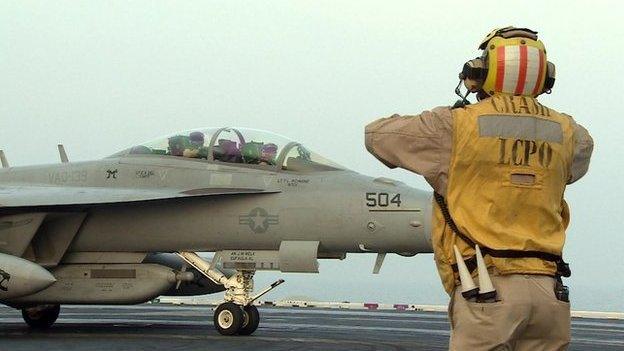
Since 2012, the US has cut its spending on the military from 4.6% to 3.9% of its GDP
As a result of its procurement practices, the Pentagon now has fighters that average 24 years and bombers that are 38 years old.
Last year it acquired fewer new planes than in any year since 1915 and was outstripped for the first time in fighter deliveries by Russia.
The US retains very large forces, of course, and it will only be during the next decade that the consequences of the growing obsolescence of much of its equipment makes themselves felt - most probably by a significant decline in the numbers of many of its major weapon systems.
Republican senators have pledged to try to reverse President Obama's plans for significant cuts (as a proportion of GDP) in US defence spending, but so far have not changed the overall direction of travel.
With the US increasingly focused on China and pressure for further cuts, the idea that America should keep shouldering 70 or 75% of Nato's spending burden is "unsustainable", according to Douglas Lute, US ambassador to the Western alliance.
So while the Pentagon has sent over small numbers of soldiers and jets following the Ukraine crisis, it is leaving the question of how best to respond to the Kremlin's growing assertiveness, largely to the Europeans themselves.
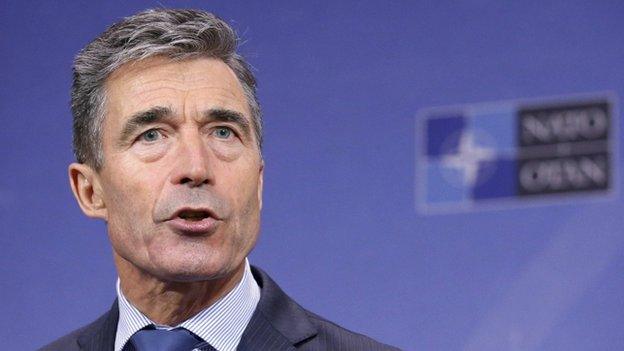
Anders Fogh Rasmussen believes less spending on defence means less international influence
Perhaps the starkest warning of all that I heard while making The Edge came from Anders Fogh Rasmussen, Nato's secretary general until last September.
"It is my clear view that we have now entered a new era of cold war," he said, "and I think it will last for decades".
Mr Rasmussen believes it is quite likely that President Vladimir Putin could test the alliance's resolve by direct pressure upon its members in the Baltic republics.
As for the consequences of declining Western military capability at a time of growing assertiveness from its rivals, these are hotly debated.
Russia and China now expect greater freedom to deal with security challenges on their periphery without American interference. Sergei Lavrov, the Russian foreign minister has said that the US will just have to get used to the deepening of the "multi-polar trend", or drift, away from a single dominant superpower.
Critics of President Obama argue that lack of leadership, as well as capability, has already emboldened extremists or adventurists, contributing to growing chaos in the Middle East.
The president's people tend to blame their Republican predecessor for the dissolving of the glue that held that region together by his 2003 invasion of Iraq.
What these partisan arguments obscure is the wider truth that the economic and military power of Western nations is declining, while that of emerging powers and even some non-state groups, grows.
That is a long-term trend, cutting across the decades, just as it does the narrow issue of who happens to be in the White House or No 10 at a particular moment.
One only has to consider the current reluctance of either of the UK's main political parties to keeping to the Nato target of spending 2% of GDP on defence - a step that would add around £30bn to the defence budget over the next five years - to realise that Western politicians do not feel confident enough to make the case for rearmament.
But that just adds to the worry of many in the defence and security business that an edge the West once enjoyed is gone for good.
The Edge will be broadcast on BBC Radio 4 at 20:00 BST, 14 April 2015 - or catch up on iPlayer.
- Published20 March 2015
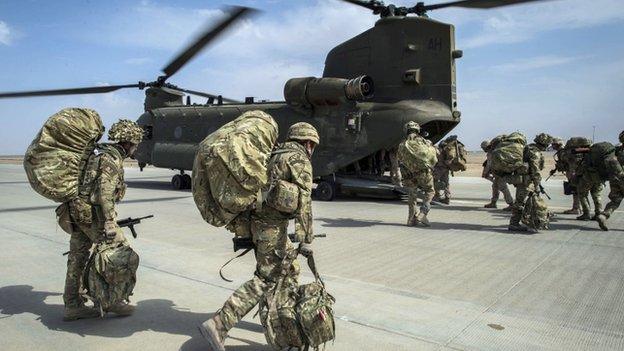
- Published12 March 2015
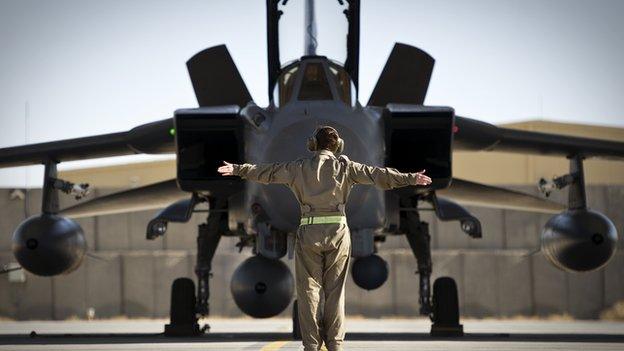
- Published8 March 2015
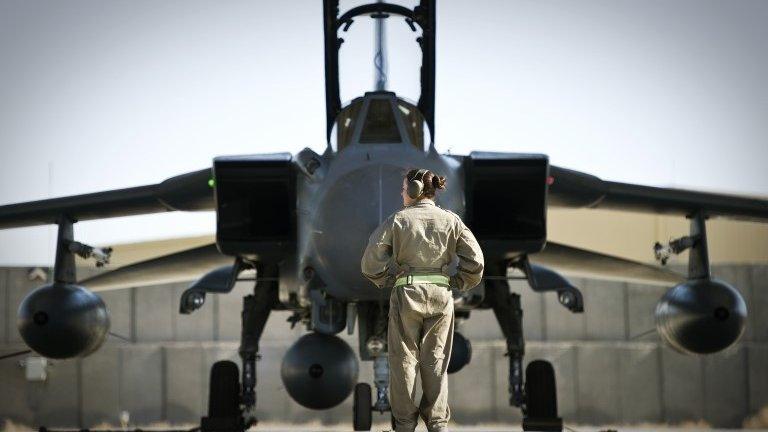
- Published26 February 2015
